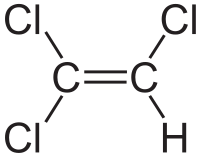
Photo from wikipedia
Background Baicalin and baicalein have antioxidant, anti-inflammatory, hepatoprotective and anti-cancer properties. However, it is not known how a static magnetic field will modify these properties. Therefore, the aim of our… Click to show full abstract
Background Baicalin and baicalein have antioxidant, anti-inflammatory, hepatoprotective and anti-cancer properties. However, it is not known how a static magnetic field will modify these properties. Therefore, the aim of our study was to evaluate the simultaneous exposure of melanoma cells to flavones and the static magnetic fields that are generated by permanent magnets on the gene expression and the activity of the antioxidant enzymes that are associated with the antioxidant defense system. Methods and results Melanoma cells that had been treated with baicalin or baicalein were subjected to a static magnetic fields with a moderate induction. The static magnetic field was emitted by permanent magnets and the cell cultures were carried out in special test chambers. The research included determining the activity of the antioxidant enzymes (superoxide dismutase, glutathione peroxidase and catalase) as well as the gene expression profile. The addition of the flavones to the cell cultures at a concentration of 50 µmol/L resulted increase in the expression of the SOD1, SOD2 and GPX1 genes compared to the nontreated cell cultures. Simultaneous exposure of the melanoma cells to static magnetic field and baicalin or baicalein reduced their mRNA levels compared to the cultures to which only baicalin or baicalein had been added. The change in gene expression was accompanied by changes at the protein level associated with an increase in the activity of antioxidant enzymes. Conclusion We showed that baicalin or baicalein have anticancer properties by disturbing the redox homeostasis in melanoma cells and also increases the antioxidant system gene expression. There was also an antagonistic interaction between the studied flavones and the static magnetic field, which cause a decrease in the anticancer effects of baicalin or baicalein.
Journal Title: Molecular Biology Reports
Year Published: 2022
Link to full text (if available)
Share on Social Media: Sign Up to like & get
recommendations!